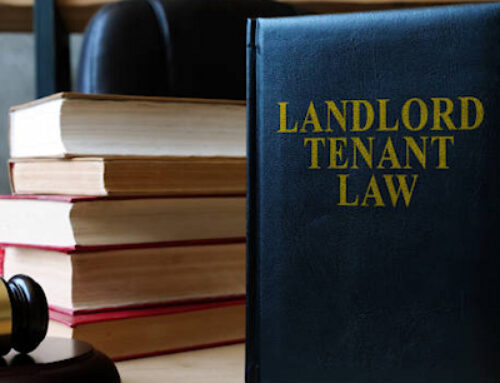A landlord’s guide to joint tenancy agreements when relationships breakdown.

If you do find out this is happening, first things first, don’t panic. If the rent has been paid regularly and on time until now, the chances are high the tenants will continue to do so in the short term.
Remain professional and impartial
It goes without saying it is important for landlords letting in Southend to remain professional when tenants are having their own personal in-house dilemmas. It sounds obvious, but don’t get involved, simply focus on the business aspects of the situation. However, when relationships do breakdown, sadly, there can be violent outbursts. If you have any reason to be concerned about the safety of your property in Southend, it’s a sensible idea to arrange a property visit to ensure everything is in order.
Surrendering a tenancy agreement
Many fixed term tenancy agreements contain a ‘break clause’, which allows a tenant to end their agreement before the fixed term expires. If an agreement does not include such a clause then a tenant cannot end the tenancy early without the landlord’s agreement. Legally, tenants are obliged to remain your tenants and must pay full rent until the end-date specified in the tenancy agreement. However, you are obliged to mitigate your losses. This means that you should allow your tenants to “assign” their tenancy to another suitable tenant either found by them, or more usually by your usual Southend letting agent. Both tenants remain liable for the rent until a new suitable tenant is found and moved in at which point they are relinquished from their obligations.
Renewing a tenancy agreement
It is often the case that one half of the separating couple requests to remain in the property as a sole tenant. In this situation, if the individual can afford the rent on their own and meets the usual referencing criteria, a new sole tenancy agreement can be drawn up. This can be an attractive solution helping the landlord to avoid the inconvenience of finding new tenants.
Change in tenant’s status
Nevertheless, switching to a sole tenancy agreement for one half of the couple may not always be a straightforward decision. Let’s imagine, Mr and Mrs Smith, who are your joint tenants, have recently informed you they are separating. However, one half of the couple, Mrs Smith, wishes to stay in the property with her children after her husband has moved out. As previously mentioned, a sole tenancy agreement may be a sensible solution. However, there can be financial issues to consider if Mrs Smith has relied on her husband’s income to pay the rent up to this point. Once separated, even with some financial contribution from her husband, Mrs Smith will not be able to afford all of the rent on her own.
If the couple divorces or becomes legally separated, Mrs Smith may be entitled to Local Housing Allowance due to loss of income and having dependents. However, it is at the discretion of the local council to determine whether the remaining party is eligible for assistance. Some local authorities will only allow a remaining individual to claim if he or she is a sole tenant. Therefore this would still mean altering the existing tenancy agreement which is a common request from separated tenants hoping to secure financial assistance in the form of government benefits.
You can ask the tenant wishing to remain in the property to disclose their income to you. However, you will not know what they are entitled to claim until the council confirms their entitlement. This may take some time. If the tenants are under a fixed term contract and still paying rent, you simply have to wait and see what happens.
If the tenants stop paying rent, you can address the situation in the usual ways. If they are in a periodic contract or nearing the end of their fixed term, we would recommend serving a Section 21 notice while the situation is clarified. Then, if the tenant cannot afford to remain in the property you have already started the procedure. If they ask for a new tenancy agreement to take to the council for their entitlement, we advise that you write a letter explaining the situation instead and offering to sign a new agreement when their financial situation is clarified. If you issue a new agreement before you know whether they can afford the rent, you will not be able to use the section 21 process.
At this point, a landlord may consider allowing the tenant to remain in the property, with a new tenancy agreement in place, but as a recipient of Local Housing Allowance which will help to cover the rent payments.
It’s all very complicated and of course each situation is different. We are happy to offer half an hour of face-to-face advice to local landlords in difficult situations free of charge. Please telephone and ask to speak to Martin, Marcus or Crystal.
Crystal joined Pace in 2007 and was appointed to her current role of Managing Director in 2010, heading up the company founded by her father in 1994.
She is responsible for the daily operations of the business, whilst also ensuring the company is financially sound, has strategic direction and is planning for future growth.
Crystal takes a thoughtful and considered approach to all that she does, transferring her determination to deliver implicit care, attention and professionalism to every member of her team.
Pace employ 20 full time staff. Meet the key team members here.









